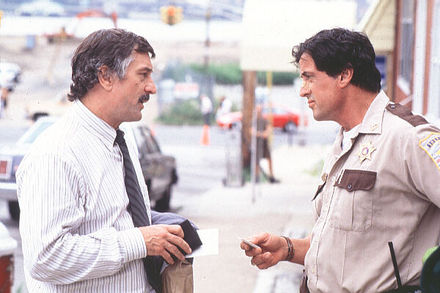I recall an article in the New York Times entertainment section that heralded the forthcoming release of three overtly political films in what must have been the fall of 1979. (My memory might be playing tricks on me. I have searched in the Times’s archives in vain for the article; if you can track it down, please let me know.) The author of the article noted the usual lack of success experienced by such overtly political films, but purred with excitement that the upcoming trio of films might change things. In the event the three films proved successful, Hollywood might get serious about using the medium to educate the masses.
I say it must have been 1979 because, as I recall, one of the three films previewed in the article was Richard Lester’s “Cuba,” starring Sean Connery. “Cuba” was a dud released in December 1979. The enthusiastic Amazon entry by Marshall Fine at least honestly notes that it is “one of Sean Connery’s least-seen films.” I went to see the film at the Grandview Theater in St. Paul because of the Times article, and I can testify that there is good reason for the film’s status as “one of Sean Connery’s least-seen films.”
The release of war-related films in the fall of 2007 brought the old Times article to mind. The AFP story on the films called Hollywood a “casualty of war” in view of moviegoers’ shunning of the Iraq-related films. The article quoted one Lew Harris making a trenchant observation:
“These movies have to be entertaining,” Harris told AFP. “You can’t just take a movie and make it anti-war or anti-torture and expect to draw people in.”
The AFP story also quoted Harris, as you might expect, blaming the victim (i.e., the audience for these films):
“People want war movies to have a slam-bang adventure feel to them … But Iraq is a difficult war to portray in a kind of rah-rah-rah, exciting way.”
One of the war movies that is deemed a commercial failure was “The Kingdom.” Lewis’s explanation does not account for its failure. It had plenty of slam-bang adventure; it was lacking in slam-bang intelligence. The film was critically compromised by a hectoring muliticultural stupidity.
I hypothesize that the failure played out here is the general failure of leftist politics to fuel viewership of big commercial films. Among the few items worth reading on 2007’s crop of Hollywood anti-war movies was the pseudonymous David Kahane’s NRO column “What’s wrong with America?” In the AFP story, Steven Bochco asserted that it is hard to engage audiences in entertainment based on “a hugely unpopular war.” Mickey Kaus suggested that we needed a “thought-controlled experiment” to determine the cause for the failure of these films:
Are Hollywood’s Iraq dramas bombing because a) people don’t want to hear about Iraq or b) people don’t want to hear about Iraq from Hollywood liberals? … Several hundred commenters at Breitbart.com (most, presumably, sent by Drudge) seems to think they know the answer. It’s not Steven Bochco’s. … If there were an Iraq film not made by Hollywood liberals, we might be able to settle the argument. …
I think if we stretch the horizon beyond the crop of 2007 anti-war films to include the Hollywood bombs of yesteryear such as “Cuba” — and thus see the films as part of the recurring manifestation of leftist politics fueling commercial failures — the need for a controlled experiment might be obviated.

COMMENTS
Please let us know if you're having issues with commenting.